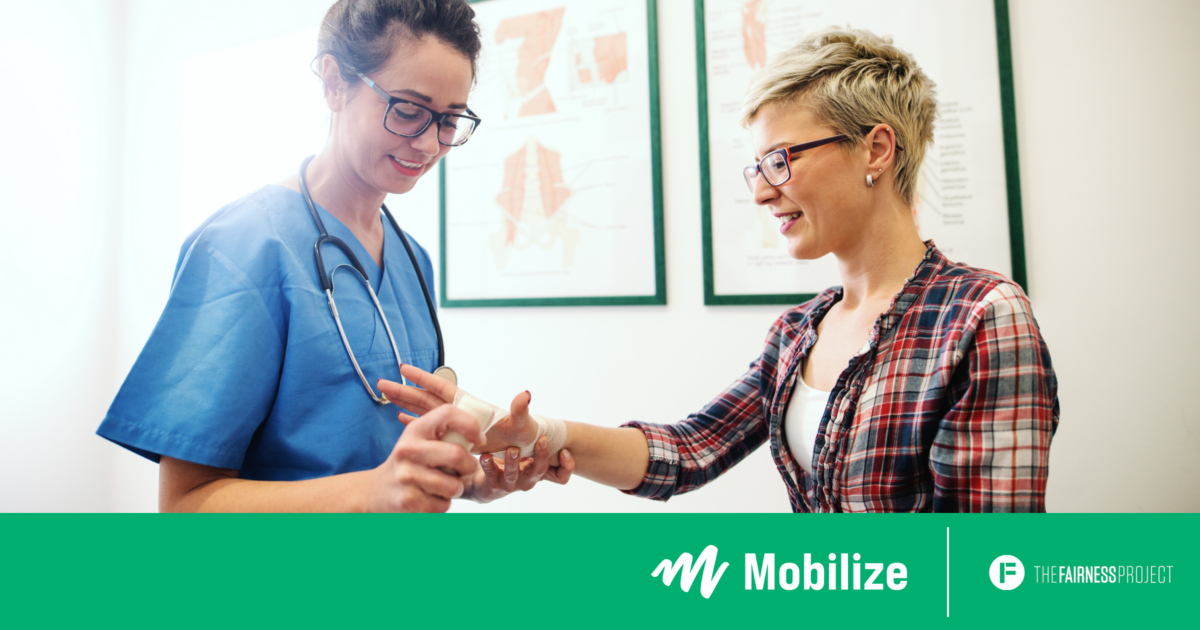
- 21%
of attendees came from bring-a-friend asks in Oklahoma
- 16%
of attendees came from bring-a-friend asks in Missouri
- 9%
of all signups from cross-promotion
Advocacy

of attendees came from bring-a-friend asks in Oklahoma
of attendees came from bring-a-friend asks in Missouri
of all signups from cross-promotion
The Fairness Project wins impactful policies for working people and their families by giving voters a direct say at the ballot box on issues like higher wages, better health care, and paid leave. Since its founding in 2015, the organization has broken through the political gridlock and obstruction that too often halts progressive change in states across the country, winning 20 of its first 21 ballot initiative campaigns.
By increasing the minimum wage, The Fairness Project has put more than $16 billion into the pockets of workers, won paid sick leave guarantees for millions, and helped pass the nation’s first-ever ballot measure for paid family and medical leave in Colorado. The organization is perhaps best known for its work expanding Medicaid in some of the reddest states in the country where millions of low-income workers have been left behind without access to lifesaving care. In 2020, voters in Oklahoma and Missouri approved the group’s latest health care initiatives, making access to Medicaid expansion a constitutional right that politicians can’t take away in two states that Donald Trump won by double digits.
One of the reasons The Fairness Project has been so successful is because it structures its ballot initiative campaigns as if they were gubernatorial or U.S. Senate races, starting years before the election to build strong coalitions and rock solid grassroots campaigns.
Volunteer engagement is a central part of its model for change, and volunteers are viewed as individuals with needs and concerns, directly tied to the issues they’re promoting. In Oklahoma and Missouri, The Fairness Project’s campaigns hosted 265 events and powered 4,850 supporter actions through Mobilize, providing an early template for how campaigns could engage core supporters during the COVID-19 pandemic. These activist networks were not only essential to victory, but will help keep the pressure on elected officials to ensure that the will of voters is fully implemented.
The Fairness Project team goes into key states years ahead of their campaigns, bringing together diverse coalitions around a shared goal of passing progressive policy directly at the ballot box. Building early relationships allows The Fairness Project to understand the unique needs of each state and campaign, and tailor their offerings accordingly.
The cross promotion feature on Mobilize enabled other organizations to highlight and promote the powerful work of The Fairness Project and its campaigns, ultimately leading to 9% more signups. It also allowed for coalition building with other progressive organizations. Cross promoting made working with other groups simple and created an ecosystem for coalition building.
In addition to cross promotions, Mobilize helped volunteers for Medicaid expansion play a key role in the recruitment process. Using tools such as bring-a-friend asks, volunteers were encouraged to recruit from their own social circles. These features encouraged volunteers to share event links to social media, through email, and via SMS.
Using cross-promotion, bring-a-friend asks, and other Mobilize features, The Fairness Project’s campaigns won Medicaid expansion in two deep-red states, delivering life-saving care for over 430,000 people in the midst of a pandemic, and proved that Americans everywhere want more health care, not less. These successes delivered a mandate for health care action and put a stop to Trump’s plan to block grant Medicaid expansion.
The Fairness Project is already looking ahead to its 2021 and 2022 campaigns, which will continue to deliver on progressive priorities to expand health care access, raise wages, and fight for economic, racial, and gender justice.
Interested in helping The Fairness Project win for working families? Sign up to find out more about The Fairness Project at https://www.thefairnessproject.org/.